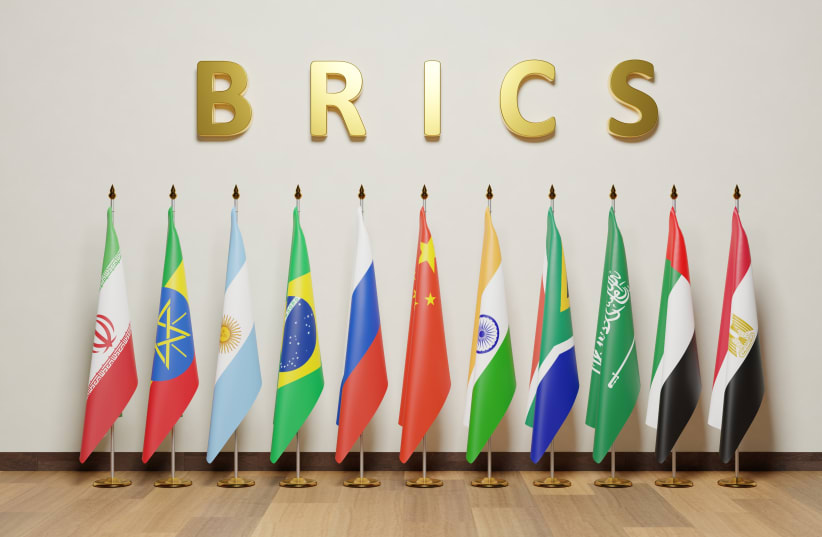Last updated on December 4th, 2024 at 11:50 am
President-elect Donald Trump has drawn a clear line in the sand, warning the BRICS bloc against advancing its plans to bypass the US dollar in global trade.
In a fiery post on his Truth Social platform on November 30, Trump declared that any attempt by BRICS nations to create an alternative currency or back a rival monetary system would face severe repercussions, including a 100% tariff on their goods and restricted access to the US market.
“The idea that the BRICS Countries are trying to move away from the Dollar while we stand by and watch is OVER,” Trump wrote, underscoring his commitment to safeguarding the dollar’s global dominance.

This statement reinforces Trump’s long-standing “America First” approach, which has shaped his economic and foreign policy vision. His team has reportedly begun crafting punitive measures to counteract de-dollarization strategies.
The BRICS bloc — comprising Brazil, Russia, India, China, and South Africa — has been actively exploring alternatives to the dollar since 2023. During a landmark summit that year, member nations discussed mechanisms such as settling trade in local currencies, adopting the Chinese yuan, and even developing blockchain-based stablecoins.
Their rationale is clear: reduce dependency on the US dollar and shield their economies from the reach of Western sanctions. The bloc’s ambitions gained further momentum this year when it expanded its membership for the first time in over a decade, adding powerhouse economies like Saudi Arabia and the UAE, alongside Iran, Ethiopia, and Egypt. With 34 more nations expressing interest in joining, BRICS is positioning itself as a formidable counterweight to Western economic influence.
Market analysts suggest that blockchain-based currencies could enable the bloc to sidestep sanctions and introduce a new framework for international trade. However, such moves directly challenge the dollar’s reserve status, a cornerstone of US economic power.
Trump’s tough stance, while expected, signals a potential escalation in global economic tensions. His proposed tariffs could disrupt trade with BRICS nations, which represent over 40% of the global population and a growing share of world GDP. On the other hand, BRICS’ growing clout and alternative banking networks might embolden member states to press forward despite the risks.
Observers warn that this clash could reshape the international financial landscape. If BRICS succeeds in carving out a non-dollar-centric trade system, the ripple effects could weaken US influence over global economic governance. Conversely, Trump’s aggressive policies might dissuade smaller nations from joining the bloc’s de-dollarization efforts.
As Trump prepares to take office in January, this brewing conflict between the US and BRICS could emerge as a defining issue of his presidency — and a pivotal moment in the evolution of global trade.
If you want to read more articles like this, visit DeFi Planet and follow us on Twitter, LinkedIn, Facebook, Instagram, and CoinMarketCap Community.
“Take control of your crypto portfolio with MARKETS PRO, DeFi Planet’s suite of analytics tools.”




















